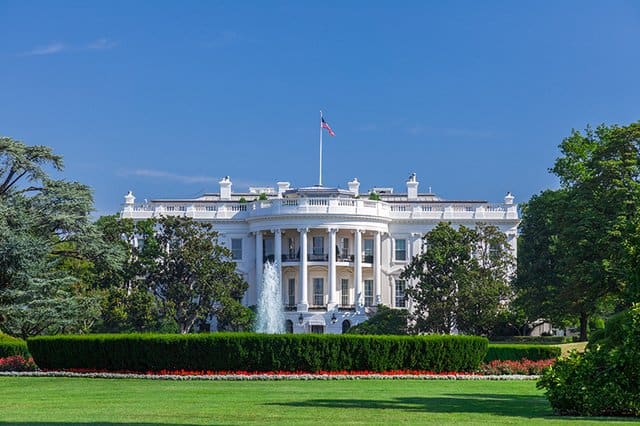The federal government is once again drumming up nostalgia for John F. Kennedy’s space program of the ’60s to evoke a strong message: Cancer death rates will crater by at least 50% by 2047.
It’ll be a quarter century before we know whether that goal comes to fruition, but the Biden administration thinks it can happen under a renewed “Cancer Moonshot” program that originally took off when Biden was vice president in 2016.
The second iteration of the moonshot will include forming a “cancer cabinet” at the White House to convene leaders from the FDA, National Institutes of Health, National Cancer Institute and Departments of Health and Human Services, Veterans Affairs, Defense, Energy and elsewhere. Biden will also get an executive office-level coordinator for the program.
The White House’s bold declaration? “[E]nd cancer as we know it today,” the administration said Wednesday. The age-adjusted death rate from cancer has dropped by nearly 25% since 2000 thanks to new mutation-specific treatments, immunotherapies, cancer vaccines and other medical tools, the administration said.
But now is the time to do more. The Moonshot program will establish a new research unit within the NIH that speeds up research for the prevention, detection and treatment of not just cancer but also infectious diseases, Alzheimer’s and others. Biden wants $6.5 billion over the next three years to establish and fund the Advanced Research Projects Agency for Health, or ARPA-H, an idea announced last year. Funding for the federal entity is included in appropriation and authorization bills that are pending in Congress, according to the White House.
Another initiative will boost cancer screening, at the urge of Biden and First Lady Jill Biden. Sticking to her educator roots, the First Lady will “stress the importance” of such measures to government partners, businesses and nonprofits. More than 9.5 million cancer screenings in the U.S. have been missed because of the COVID-19 pandemic, the White House said.
The White House plans to hold a Moonshot Summit to bring together agency leadership, biopharmaceutical companies, researchers, patient organizations and more. Other ideas include earlier cancer diagnosis through blood tests; mRNA technology that might stop cancer cells before they populate in the body; addressing inequitable access to clinical trials and treatments; making individualized treatments; speeding up clinical trials; and bringing together data from patients for a “learning system.”

